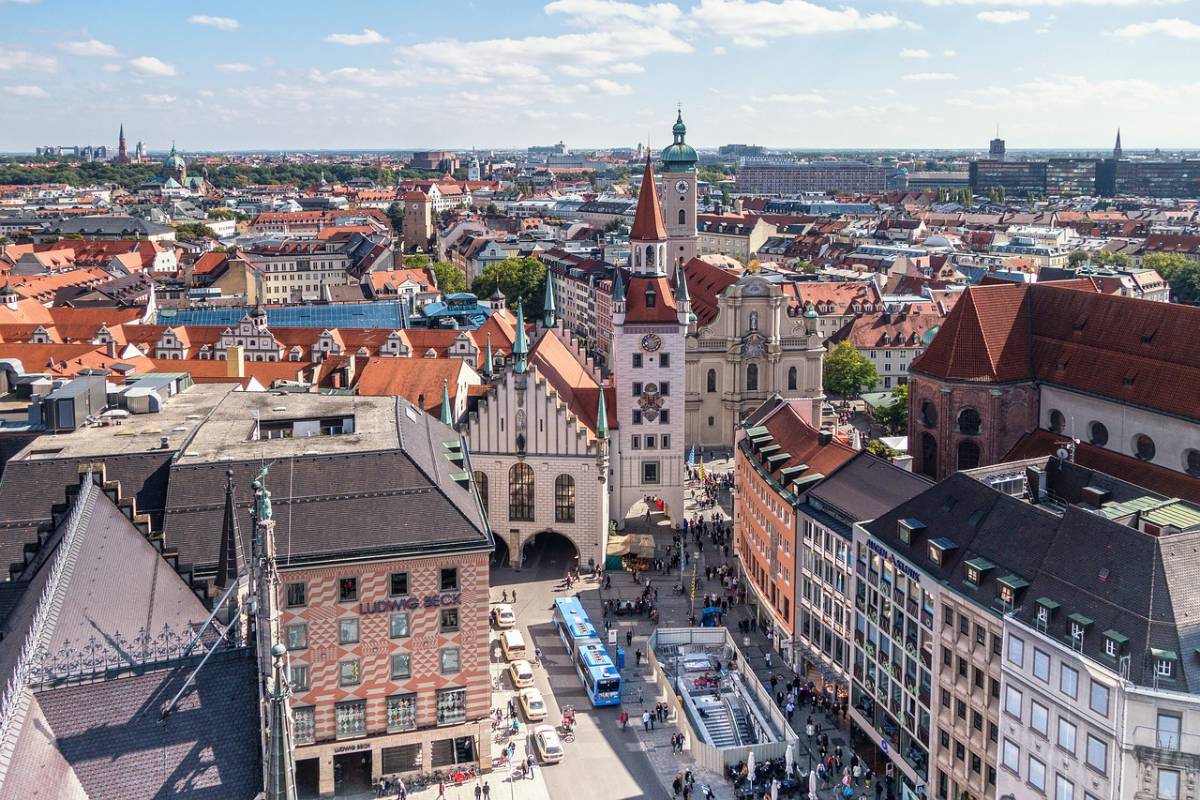Virtual Jet-Setting: How Metaverse Will Transform the Travel Industry
Featured image by peoplecreations on Freepik
The metaverse, while still a relatively loosely defined concept, has come to the forefront of discussion in recent years. It presents opportunities to a wide range of industries willing to capitalize on its expansion.
One of them is the travel industry. The metaverse provides numerous opportunities, including virtual tours of attractions and accommodation, better booking and customer service experiences, and even developing new, totally virtual events and experiences. Let’s take a look.
What is the Metaverse?
The metaverse is composed of various virtual 3D environments, providing an immersive experience that combines the real world and the virtual world. The metaverse can be explored using virtual reality (VR) equipment, or using augmented reality (AR) systems. Advancements in these kinds of technology, like the Oculus Rift (virtual reality headset), have made the metaverse an achievable reality.
These technologies enable users to travel to other environments, other cities, and even other planets, all without ever leaving their home. They also enable interactions between people across the world in this shared virtual space, through the use of avatars.
From shopping to virtual office party ideas, and everything in between the applications are almost limitless. The virtual world has the capacity to greatly impact our everyday lives. As such, the metaverse market is expected to rapidly grow during the next decade.
The Advantages of Metaverse to Tourism
At first glance, it may seem that the metaverse would present a threat to the tourism industry. If travelers can experience another location without leaving their home, then why would they need to spend the money to travel?
These concerns are largely unfounded, however. In its current state, it’s unlikely that the metaverse will provide an adequate substitute for physically visiting a location, and experiencing the sights, smells, and sounds of a new destination.
There are, in fact, several benefits that the metaverse may hold for the tourism industry.
Giving Prospect Customers an Immersive Experience even Before the Trip
The metaverse provides an opportunity for potential travelers to experience parts of a trip before they depart. While not a substitute for the actual excursion, this can help travelers who may be nervous about a trip become more comfortable.
Being able to get accustomed to a location before visiting it may help assuage the fears of nervous or uncomfortable travelers, giving them the confidence to fully enjoy a new location once they arrive.
Even seasoned travelers will be able to use the metaverse to assist in planning their trip, helping them to develop an itinerary of must-see locations and attractions. Being able to glimpse a hotel or attraction before visiting can help inform a decision about whether it’s worth visiting or not.
Increasing Booking or Travel-Related Purchases
As already mentioned, the metaverse can be used to give customers a taste of the trip they’re considering before they depart. Immersive virtual environments can highlight the unique selling points of destinations, attractions, and accommodations.
By experiencing the environment in a 360° virtual space, potential travelers will be able to grasp the size and scope of areas much better than they could simply from viewing 2D photos or videos.
Hotels can really show off the size of their rooms, and museums can better convey the impact of their exhibits. Travelers who may be undecided about booking a trip may well be persuaded to do so after getting a taste of what it will be like through the metaverse.
In this way, the metaverse provides a powerful advertising tool for those working in the tourism industry, providing another platform for them to highlight why prospective customers should spend their money with them. Almost 50% of people surveyed said they would use VR as a source of information when traveling, provided it was a free service.

Image sourced from immersionvr.co.uk
Providing Better Booking Experience and Customer Service
The metaverse isn’t just a tool for visiting new locations, it also provides a space for interaction. The metaverse can provide travelers with a virtual travel agency to visit, allowing them to ask questions, negotiate deals, and build their holiday package, with the help of a, (real, or virtual), travel agent.
But the metaverse isn’t just a useful tool for booking a trip, it can also have applications while travelers are away on their holiday. Using the metaverse, travelers could potentially order food, buy souvenirs, or communicate with hotel staff, all without leaving their hotel room. This gives them more time to see the unique attractions of their destination while they’re out and about.
How the Metaverse will Transform the Travel Industry
There are several applications of the metaverse and its associated technologies which could transform the travel industry, providing new opportunities for expansion and growth.
Virtual Reality (VR) Technology
Virtual reality technology provides a new way for organizations to attract visitors, potentially ones who may have not been willing, or able, to engage with them otherwise.
Several high profile institutions are already offering virtual reality tours of their facilities, including art galleries such as the Louvre Museum in Paris, France. Virtual tours allow visitors to view exhibitions, learn about works of art, and even join up with friends or family members in a shared virtual space to enjoy a tour together.
This has expanded the potential visitorship of the Louvre greatly, giving members of the public a chance to visit the museum who may not have been able to due to the inability to travel physically, or the prohibitive cost of international travel.
It also has the added benefit of giving viewers a taste of the real-world experience, encouraging them to visit the sites in person.
VR technology can have further applications, allowing promoters to host virtual concerts and other entertainment events, as well as virtual business meetings.
Real Time Route-Finding through Augmented Reality (AR)
Augmented reality differs from virtual reality, in that rather than being immersed in a virtual world, elements of the virtual world are overlaid in the real world around a traveler.

Image sourced from statista.com
In the travel industry, this has several useful applications, with over a billion estimated users of AR-enabled devices around the world. Buildings and other historical attractions can have information relating to them displayed in an AR app, and maps can highlight potential sights of interest for travelers.
Museums and art galleries can use this feature to further enhance exhibits, notably to provide alternate language options which can be selected by the viewer. When it comes to traveling, AR features can be used to show ticket prices, departure times, and connections in train stations and airports.
Virtual Bookings
Virtual bookings can be provided by hotels, airlines, train operators, and attraction managers in order to help take some of the stress out of booking trips and excursions for their customers. And when we say ‘virtual’, we don’t just mean by making virtual calls from a browser.
An immersive booking experience can be provided in the metaverse, giving travelers an environment in which they can access detailed information, compare prices, and ultimately make bookings.
Hotels can provide tours of their rooms, giving customers a chance to try before they buy. Airlines can give virtual tours of their cabins, showing which seats are available, and exactly where they’re located, enabling customers to choose the perfect option.
Virtual theme parks, museums, and zoos
Virtual versions of popular attractions, such as museums, zoos, and even theme parks, can provide visitors with a unique experience, not bound by real-world limitations.
Museums can hold virtual tours of exhibitions, enhancing them with extra information and experiences, giving visitors a chance to experience them without leaving their homes.
Zoos can offer guests a tour of animals from all around the world, without the need to care for or even obtain some of the animals in question. They could even feature animals which are extinct, or entirely fictional creatures, providing a truly unique experience for virtual visitors in the metaverse.
Theme parks can provide an immersive experience for guests, placing them on a roller coaster that thrills them just like the real thing, without the need to queue. Money can be saved in other areas of the business, such as energy and utilities, by offering a virtual experience.
Blockchain Transactions
The metaverse is capable of integrating blockchain technology in order to change the way that ticketing, identification, and payment are processed online. The blockchain creates a record of any transactions carried out, complementing them with time stamps and other data.
As the number of blockchain wallet users has expanded over time, usage of the technology has increased.

Image sourced from zippia.com
This can be used to verify purchases of souvenirs, tickets to attractions, accommodation reservations, and a multitude of other commodities. Think of it as an extension to online services such as providing electronic signatures in Canada.
Wrap Up
Due to the ability to replicate real world experiences in a virtual environment, the metaverse may seem like a threat to the travel industry at first. However, there are numerous ways in which the industry can utilize the metaverse, and its associated technologies, to complement the services they offer, and contribute to the transformation of the business enterprise.
AR technology can be used to provide an enhanced experience for visitors to a wide range of attractions, giving businesses the chance to revolutionize the services they offer to appeal to a wider range of customers.
VR technology can open up attractions to tourists who may otherwise be unable to visit them at all, expanding the potential customer base and increasing revenue. It also gives businesses a chance to show off the experience they’re offering in greater detail, securing customers who may be on the fence about visiting.
As technologies develop, and the metaverse expands in scope, the opportunities afforded to the travel industry are likely to expand at the same time. Industry leaders need to stay up to speed with developments in the metaverse, including any emerging security risks, in order to ensure they are seizing every advantage available to them, securing their businesses for years to come.






